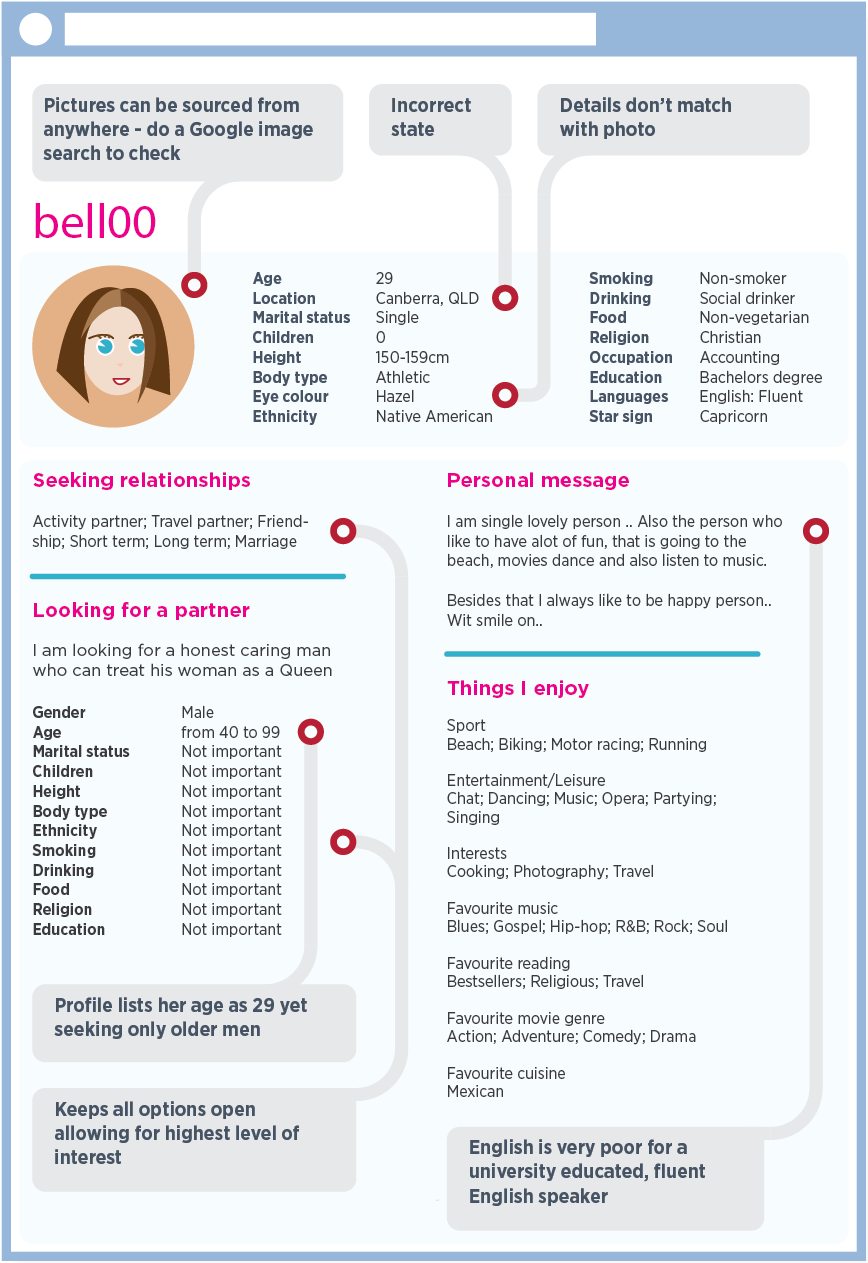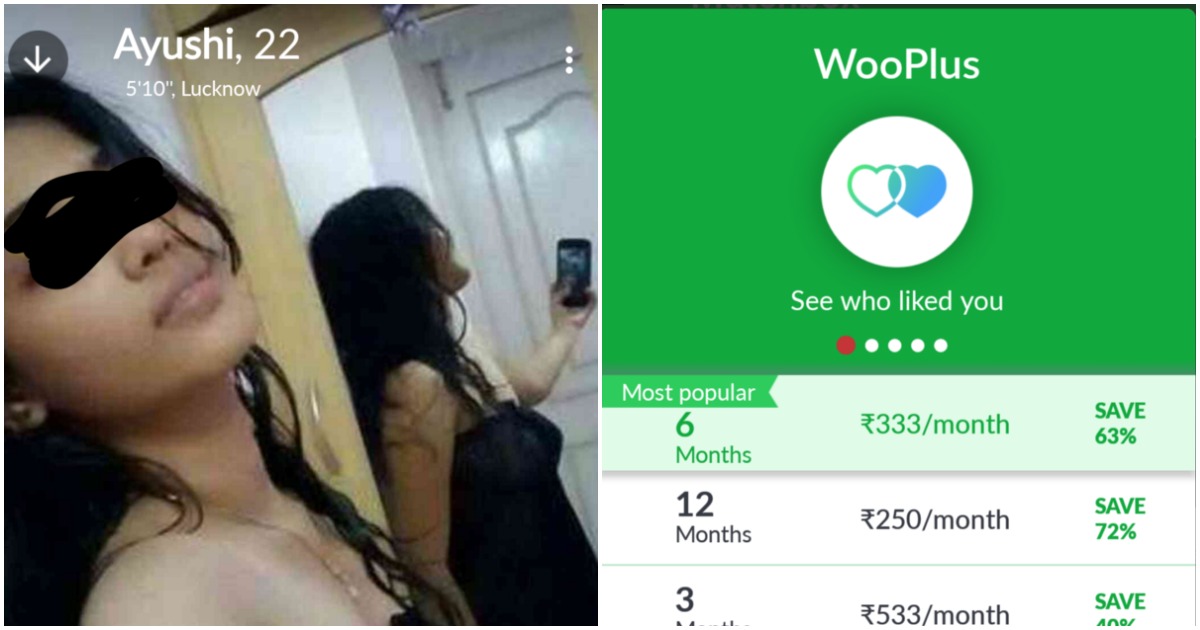Fake Profiles On Facebook Dating App
By this point, anybody who’s been single in the last five years has tried online dating, which is great for people who are actually trying to meet somebody online. But with the recent spike in popularity, scammers are also trying to get in on the fun and they’re getting good at it.
Apr 04, 2020 Right-click their photos, copy the URL, and paste in the box at images.google.com. Google will then search for other sources of that image online. If nothing is found, try a few photos and see what crops up. Don’t forget that Instagram images aren’t indexed so Google won’t be able to search them. A dating scam bot is a computer code script that constructs fake profiles, matches with real users, and sends generated messages designed to trick you into divulging financial information. Usually, within minutes of starting a conversation, a bot profile will try to redirect you to a sketchy site outside of the dating app. Right-click their photos, copy the URL, and paste in the box at images.google.com. Google will then search for other sources of that image online. If nothing is found, try a few photos and see what crops up. Don’t forget that Instagram images aren’t indexed so Google won’t be able to search them.

Scammers come in all shapes, sizes, and locations and they’re everywhere on dating apps and websites, so it’s important to know what to look out for. Remember that they’re always looking for a way to profit from you, so if you think there’s an angle for them to make money you should end contact and report them immediately.
Dating App Profile Help
These are some of the current most popular online dating scams you’ll want to watch out for.
The Hard Come-on
You start chatting, and they tell you they like you. A lot. Within the first twenty minutes of chatting, they’ve already made sultry declarations of passionate love and are urging you to get off the app and message them over email or a private messaging service, like Whatsapp, Facebook Messenger, or Line.
Soon, they’ll try to initiate a date, but they’ll cancel at the last minute with an excuse that seems almost probable. They got called abroad for a last minute business trip or their mother got sick and needs medical attention. They reschedule. Moments before your next date, they cancel again. Something outlandish, but still remotely plausible. Then, another outlandish situation, but this time they need money. Something to help cover medical bills for their mother, or they left their wallet on the train. Don’t give them money.
These hard come-on scams are one of the most common ways that scammers will try to work you for your money. Besides plain intuition, there are a few other telltale signs online dating scammers give off. One, they can never meet up. I don’t mean that they don’t meet up often. I mean you’ve literally never met them. Second, look out for typos or, if they call, a possible foreign accent. Many scammers live abroad, so it’s important to look for fault in their speech fluency. Third, they look to move chatting off the dating app or site very quickly. Dating sites monitor interactions very closely to catch scammers, so scammers are incentivized to get to chatting off the dating sites as quick as possible in case their accounts get banned. While none of these things are surefire proof that your match is a scammer, one or more of these signs taken in context should help you figure things out pretty quickly.
The Bot
A dating scam bot is a computer code script that constructs fake profiles, matches with real users, and sends generated messages designed to trick you into divulging financial information. Usually, within minutes of starting a conversation, a bot profile will try to redirect you to a sketchy site outside of the dating app. The shady website will either try to trick you into entering credit card or bank account information or install malware onto your computer or mobile device that will try to harvest your private information.
Does Facebook Dating Have Fake Profiles
Because the bot isn’t a human operator, typically, these are some of the easiest types of scams to spot. Bot scams usually have photos that are pulled from the internet and that often aren’t even of the same people. Low resolution images are another dead giveaway. Oftentimes, a quick google image search will show you whether or not the person you’re chatting with is who they say they are. Next, evaluate the conversation. Bots will almost always start the conversation first, and have canned call and response lines. If you see that their answers or questions don’t apply or completely ignore what you wrote, report them immediately and break off contact.
The Spammer
The spammer usually operates identically to the bot, except the profile is manned by a person.
The chief way to tell if you’re dealing with a spammer is that they’ll try to direct you off the dating site or app to a spam website that asks you to enter financial information. These alternative websites may pose as messaging services or offer some other subscription-based service. Don’t be fooled: these are ploys to harvest credit card information which will then be used for making fraudulent charges.
The Too Good to Be True
The last type of scammer usually poses as an attractive young man or woman to prey on someone older. These types of scams use a profile of an attractive person as a facade to get vulnerable users to either divulge credit card information or purchase expensive gifts. The scammers then commit credit card fraud or sell the gifts upon receipt, similar to the last two methods.

To catch these types of scammers take a close look at their profiles. You don’t have to lack confidence to know there’s something odd about an attractive person 15 or 20 years your junior fawning over you based on your profile. Do a quick google image search of their photos and see if they turn up elsewhere. If they do, they’re likely a scammer. If they flatter you nonstop, they’re probably a scammer. If they start requesting gifts or credit card information, you guessed it, they’re probably a scammer.

Make no mistake: the popularity of online dating is good for singles everywhere… but there will always be people out there looking to spoil the fun. The best way to prevent getting scammed is simple—don’t hand out money, no matter the circumstance. If you follow those two simple rules and trust your gut, you’ll be safe almost every time.
To learn more about scammers and how to spot them, check out out these real-life examples of things online dating romance scammers say to trick you and download this free online dating scammers guide.
Subscribe to our newsletter
How To Tell Fake Profiles On Dating Sites
By clicking Submit you agree to Zoosk’s terms of use and privacy policy.